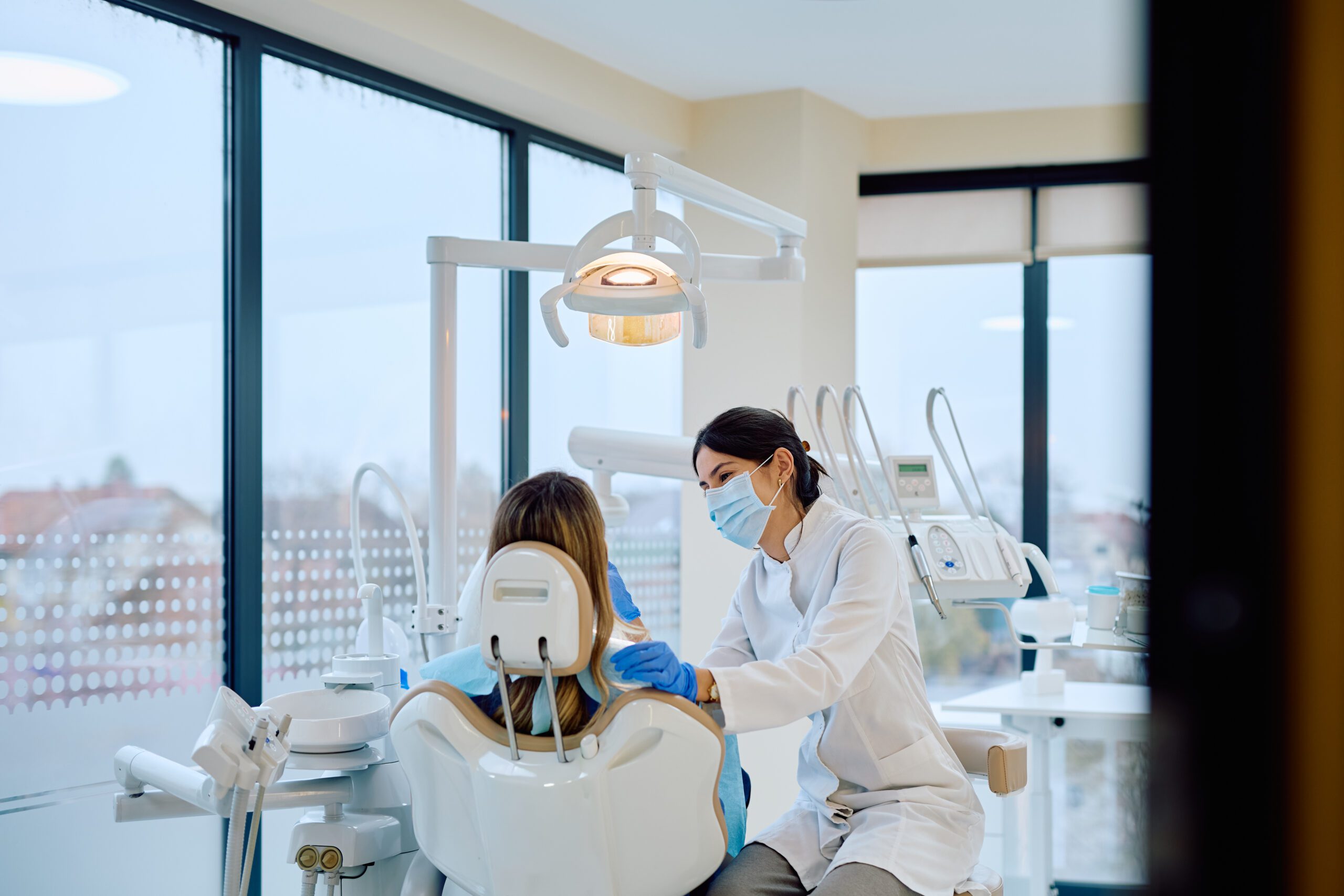As the NHS continues to face its most significant dental workforce challenges in a decade, new opportunities are emerging across the profession. With more than 2,000 dental posts unfilled across the UK and a growing focus on prevention, digital innovation, and flexible models of care, 2026 is expected to be a transformative year for dental professionals.
According to NHS England, improving patient access to dental care remains a national priority that depends on attracting and retaining skilled clinicians.
Below, we explore the dental roles set to thrive in 2026, the market forces shaping them, and practical insights for professionals looking to stay ahead.
Best Dental Roles to Watch in the UK in 2026
1. Dental Therapists and Hygienists: Driving Preventive Care
The shift toward preventive, team-based dentistry is fuelling strong demand for dental therapists and hygienists. Practices increasingly delegate routine restorative and periodontal treatments to these professionals to improve capacity and patient outcomes. To stay competitive, clinicians in this field should complete accredited programmes, record substantial supervised clinical hours, and build portfolios showcasing restorative and patient education skills. Further training in local anaesthesia and extended restorative techniques, within the GDC Scope of Practice, can significantly enhance employability.
2. General Dental Practitioners and Locums: Balancing NHS and Private Demand
Even as contract pressures continue, experienced General Dental Practitioners (GDPs) remain highly sought after. Many practices now operate hybrid NHS–private models to maintain stability, and flexible locum clinicians are essential to meeting patient demand. Keeping performer numbers active, maintaining robust CPD records, and demonstrating efficiency in UDA delivery all strengthen employability. Locum dentists, in particular, benefit from strong relationships with Verovian dental recruitment agency and up-to-date compliance documentation, including enhanced DBS checks and professional indemnity.
3. Implant Clinicians and Restorative Specialists: Expanding Private Growth
With the UK’s implantology market steadily expanding, clinicians trained in implant placement and complex restorative care are seeing growing opportunities in private practice. This trend is fuelled by an ageing population and rising expectations for advanced prosthetic solutions. Dentists who invest in formal implant training, such as postgraduate diplomas or courses accredited by the British Association of Oral Surgeons (BAOS), will find themselves well placed. Documented case logs, digital planning expertise, and collaboration with high-quality dental laboratories can set skilled clinicians apart.
4. Orthodontists and Clear Aligner Specialists: Meeting Aesthetic Demand
Aesthetic orthodontics continues to surge in popularity, particularly among adult patients seeking discreet, removable aligner systems. Limited NHS provision has led to rapid private growth, creating opportunities for orthodontists and general practitioners trained in aligner therapies. Professionals who pursue recognised certification (such as Invisalign or ClearCorrect) and develop proficiency with digital scanning and planning systems are well positioned to thrive. Building a visual portfolio of successful case outcomes and patient testimonials can also enhance professional visibility.
5. Dental Technicians and Clinical Dental Technicians: Pioneers of Digital Dentistry
The laboratory sector is undergoing a technological revolution. CAD/CAM design, 3D printing, and digital workflows are transforming how dental technicians and clinical dental technicians deliver results. Those skilled in software such as 3Shape or Exocad and able to collaborate closely with clinicians are becoming indispensable to modern practice operations. Joining professional networks like the Dental Technologists Association (DTA) and maintaining a portfolio of digital case studies will strengthen professional credibility.
6. Domiciliary and Special-Care Dentists: Delivering Care Beyond the Surgery
An ageing population and increasing prevalence of chronic conditions are driving demand for domiciliary and special-care dentistry. These professionals provide vital treatment to patients in care homes, hospitals, or private residences who may otherwise struggle to access dental services. Dentists looking to enter this field should seek training in sedation and patient management for complex medical histories while developing confidence with portable dental equipment and risk assessment. Networking with local social care and community health teams can also open new referral pathways.
7. Dental Nurses with Enhanced Duties: The Backbone of Modern Practice
Across the UK, dental nurses who combine clinical competence with leadership and adaptability are in short supply. Those qualified in radiography, oral health education, or infection prevention play a crucial role in maintaining efficiency and patient safety. By undertaking post-qualification courses through the National Examining Board for Dental Nurses (NEBDN), dental nurses can expand their skillset and open pathways into senior or managerial roles. Practices particularly value nurses who demonstrate initiative, reliability, and strong communication.
8. Practice Managers and Clinician-Leaders: Steering the Future of Care
The success of any dental business now depends heavily on effective management. With ongoing NHS contract reforms, digital compliance systems, and mixed-funding models, practice managers and clinician-leaders who understand both operational and clinical dynamics are in increasing demand. Qualifications in healthcare management, familiarity with CQC standards, and proficiency with digital practice-management software are major assets. Financial literacy, HR capability, and team leadership complete the modern management profile.

Staying Competitive in 2026: Practical Steps
- Map demand to skill: Review NHS workforce data to identify regional shortages and align your CPD with those needs.
- Build measurable outcomes: Keep a portfolio of treatment results, patient feedback, and audit evidence of impact wins interviews.
- Invest in digital proficiency: Competence with scanners, software, and cloud-based systems now distinguishes leading professionals.
- Network intentionally: Join reputable professional bodies, local dental committees, and online groups for collaboration and referrals.
- Stay flexible: The most employable professionals will adapt between NHS, private, and locum settings with ease.
Policy Awareness and Professional Insight
The General Dental Council (GDC) continues to guide the profession’s evolution through updated scope, ethics, and CPD standards. Meanwhile, NHS dental recovery plans and contract pilots will reshape funding and workforce distribution in the coming years. Staying informed not only ensures compliance but also positions professionals to seize opportunities as new models of care emerge.
Conclusion: Building a Career for the Future
The next year will reward dental professionals who combine clinical excellence with digital fluency and an appetite for lifelong learning. Whether you are a newly qualified therapist, an experienced GDP expanding into private practice, or a technician mastering digital workflows, success in 2026 will depend on readiness, adaptability, and strategic career planning.
Advance Your Dental Career with Verovian Dental Agency
We connect skilled dental professionals with practices across the UK that value clinical excellence and compassionate care. Explore permanent, locum, and leadership roles tailored to your expertise and ambitions.
Visit our Dental Careers Portal to discover the latest opportunities and expert career support for 2026 and beyond.




